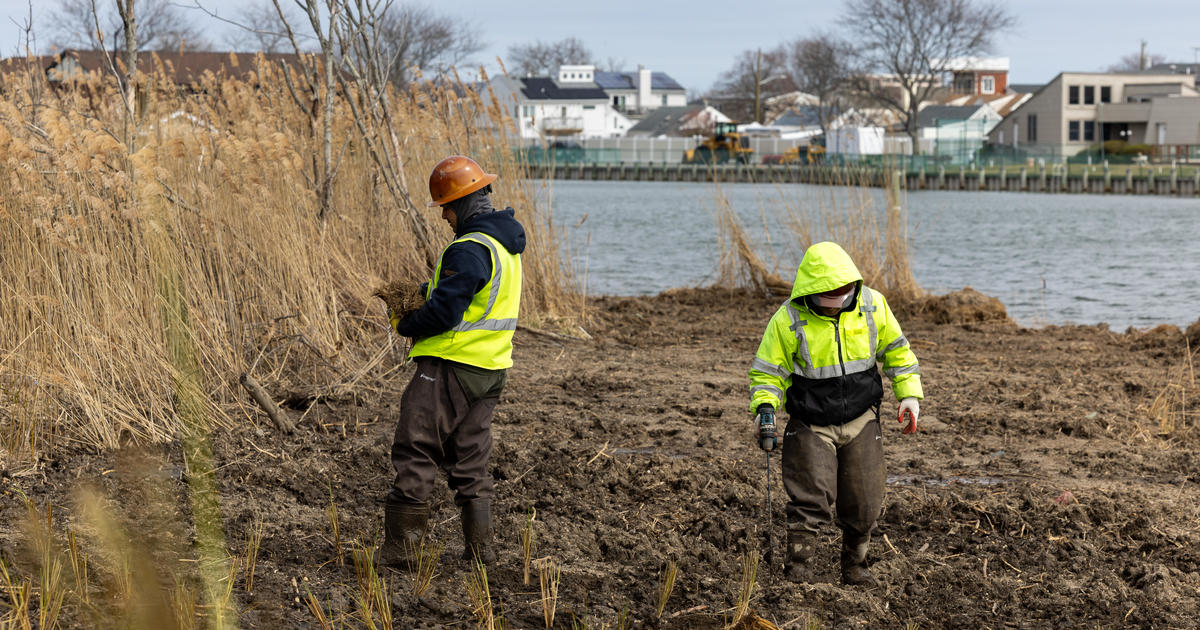New Initiative On Long Island Pushing For Planting Of Seeds Resistant To Storms
RIVERHEAD, N.Y. (CBSNewYork) -- It's a "growing" trend in the suburbs: going native.
Homeowners are landscaping with native plants, thanks to a new initiative, CBS 2's Carolyn Gusoff said.
It's a real grassroots effort -- volunteers planting seedlings to fill Long Island gardens with native plants.
They're volunteers with the Long Island Native Plant Initiative, an effort to think beyond typical suburban landscaping, and instead, plant what grows naturally.
With so many shrubs killed by Hurricane Sandy's salt water the group is trying to get landscapers and the public to use plants that will survive storms and help the environment.
"That are aesthetically pleasing and colorful and shapely that people will enjoy in the landscape but will also provide habitat for our native bees and butterflies," said Polly Weigand of the Long Island Plant Initiative.
Volunteers cultivate the seeds from the wild, which isn't easy.
"This shattered pine cone material … all loaded with shattered pitch pine seed," said Paul Anderson, president of the Long Island Plant Initiative.
The seeds are then cleaned and planted. The result is 35 genetically native Long Island plants, which are now on sale to the public at Suffolk Community College in Riverhead. As Gusoff saw in one Bellport backyard, natives like cactus, wild roses and Black-eyed Susans were blooming.
"If you're looking for native plants you have a lot of choices and they are just as lovely," Bellport resident Dava Stravinsky said.
The plants not only storm resilient, they also promote pollination and require little care.
"You don't have to irrigate them or provide fertilizer and that protects our waterways and our ground water.
Volunteers say it's a challenge to get Long Islanders to think about planting with species that we usually think of as weeds. But they said they're only called weeks because they grow naturally.
Volunteers said they're also growing the native plants to stock local nurseries, which normally don't carry the species.
You May Also Be Interested In These Stories



